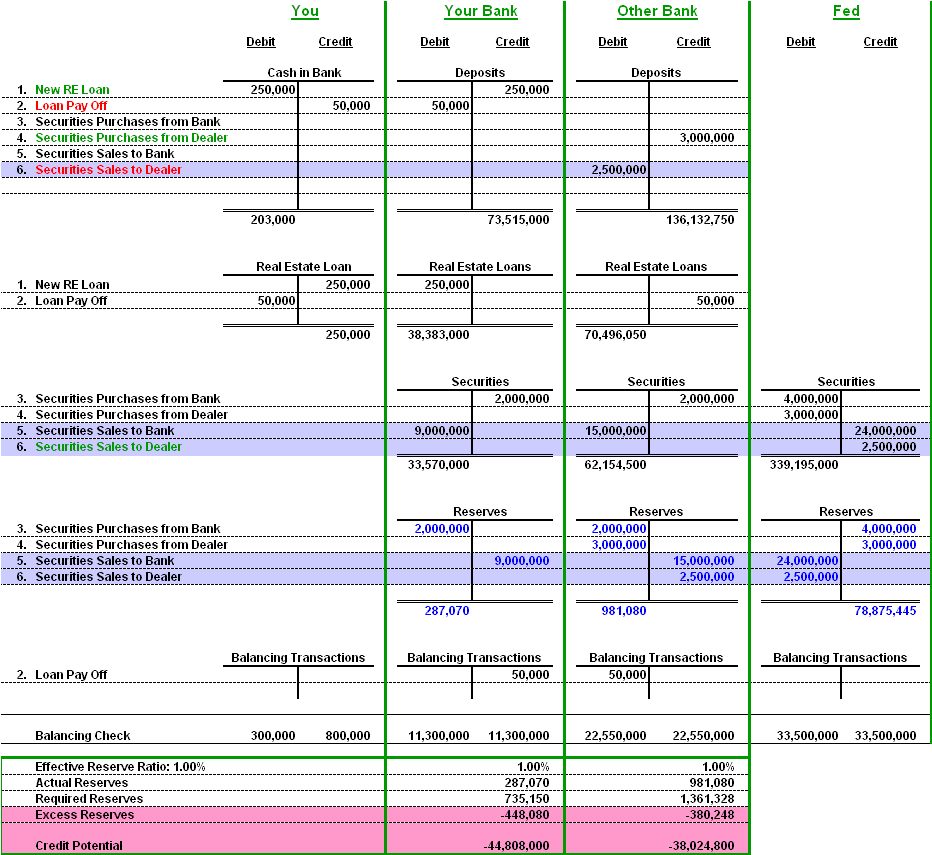The Free Market Center
The Free Market Center

A brief detour into fears about deflation seems appropriate at this point.
Mainstream economics continually raises the specter of "deflation," which, in their terms, means a general decline in prices. But, the thrust of a productive economy consists of improving productivity and driving prices down. Declining prices caused by increased production means higher real income for workers. The broader the range of price declines the better for the economy, but do not confuse that with real deflation.
Artificially induced deflation (a decline in the quantity of money due to central bank or government action) poses a huge threat to an economy. The slightly unrealistic example, shown above, gives a glimpse into the devastating effects of artificially induced deflation.
In this variation on the example of securities sales to banks the Fed sells $24 Million (instead of $10 Million) to the two banks, in the proportions shown. (Fed also makes the $2.5 Million sale to the non-bank dealer.) This creates a combined deficit in reserves for these two banks of over $800,000. To cover this shortfall the two banks must reduce their deposits by over $80 Million dollars. To make that reduction they will have to call, or not renew, at least $80 Million dollars in loans.
To pay down their loans, businesses will need to cut back or close. Consumers will have to cancel other purchases or sell assets. The price declines by these actions would cause unwarranted economic catastrophe.
The Fed, by its actions, allows havoc on the up-side, but it actually creates havoc on the down-side.
We've seen the actions the Fed uses to increase and decrease bank reserves and influence the money supply…
© 2010—2020 The Free Market Center & James B. Berger. All rights reserved.
To contact Jim Berger, e-mail: